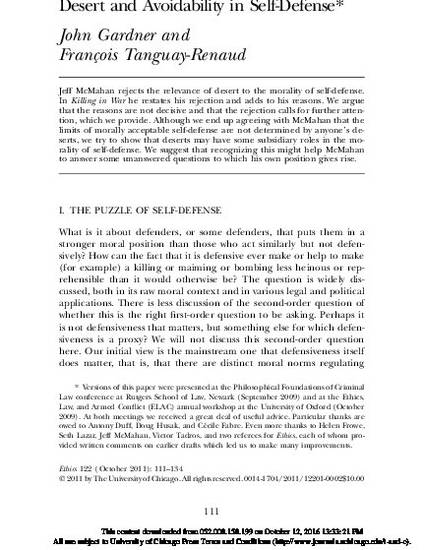
Article
Desert and Avoidability in Self-Defence
Ethics
Document Type
Article
Publication Date
1-1-2011
Keywords
- War--Moral and ethical aspects,
- Combat--Moral and ethical aspects,
- Military ethics,
- Merit (Ethics),
- Self-defense
Disciplines
Abstract
Jeff McMahan rejects the relevance of desert to the morality of self-defense. In Killing in War he restates his rejection and adds to his reasons. We argue that the reasons are not decisive and that the rejection calls for further attention, which we provide. Although we end up agreeing with McMahan that the limits of morally acceptable self-defense are not determined by anyone’s deserts, we try to show that deserts may have some subsidiary roles in the morality of self-defense. We suggest that recognizing this might help McMahan to answer some unanswered questions to which his own position gives rise.
Creative Commons License
Creative Commons Attribution-Noncommercial-No Derivative Works 4.0
Citation Information
Tanguay-Renaud, François, and John Gardner. "Desert and Avoidability in Self-Defence." Ethics, vol. 122, no.1 (2011): 111-134.
